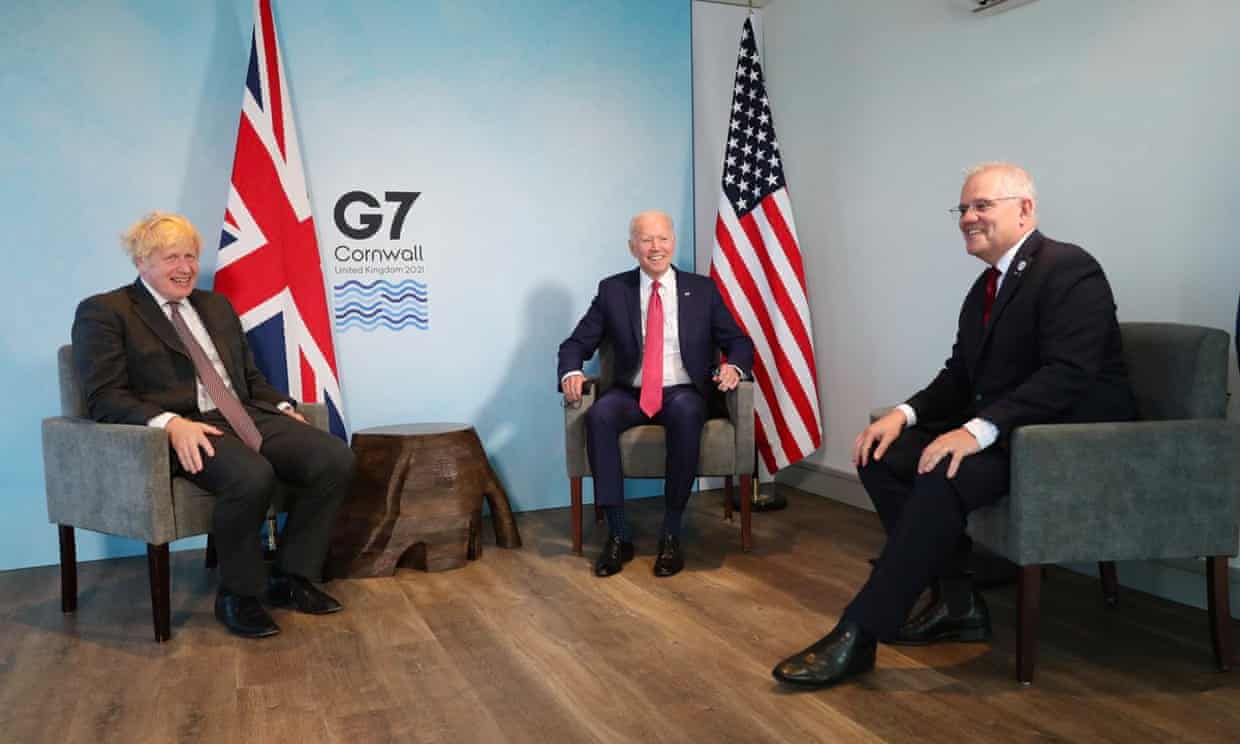
A large part of Biden’s winning message in 2020 was of a shift away from Donald Trump’s unpredictable and often destructive behavior — a shift “back to normal.” Perhaps nowhere is this more evident than when looking at Biden’s foreign policy platform. In the barest terms, Candidate Biden’s foreign policy plan was simple: restore America’s long-standing alliances, attempt to repair the damage to America’s reputation, and lead in promoting democracy and human rights. His message can be summarized by his words from his virtual speech at this year’s Munich Security Conference — “America is back, the transatlantic alliance is back.”
Perhaps the most important foreign policy decision that Biden has made since entering office has been in the execution of a “pivot to China” — continuing the legacy of President Obama’s pivot to Asia in 2012, and of President Trump’s own aggressive policies towards China. Biden’s “pivot to China” can be seen as one of the many reasons behind the withdrawal from Afghanistan, in the Biden administration’s continued and explicit backing of Taiwan, and in the signing of the AUKUS trilateral security pact between the United States, United Kingdom, and Australia.
The AUKUS security pact is the most bold aspect of Biden’s China pivot yet, involving the sharing of technological knowledge in areas like “artificial intelligence, cyber, quantum, underwater systems, and long-range strike capabilities.” The most immediate and controversial aspect of the pact has been the agreement reached in the AUKUS pact for Australia to acquire at least eight nuclear-powered submarines. Australia’s acquisition of these submarines will greatly enhance the Royal Australian Navy’s defensive and offensive capabilities in the Indo-Pacific region — a fantastic additional counterweight to Beijing’s rapidly expanding navy. But in that submarine agreement came the primary controversy, as the acquisition agreement on nuclear submarines led Australia to scrap a previous agreement with France, worth about $90 billion, to build twelve submarines. The sudden dropping of the French agreement, which had been made in 2016, with very little previous communication on the matter, was seen as a massive breach of trust in France. The French foreign minister described it as a “stab in the back,” and two days later the French ambassadors to the U.S. and Australia were withdrawn.
France’s anger over the pact is manyfold and reasonable. Not only is the sudden breaking of a previously agreed upon deal by Canberra, without any prior notice, in favor of a separately negotiated deal with Washington D.C. and London indeed a breach of trust, but France has also been excluded from the pact altogether. With territories in the South Pacific and in the Indian Ocean, France considers itself an Indo-Pacific player — a status harmed by the fact that the U.S., U.K., and Australia excluded France from their new approach to the Indo-Pacific region. When considering the double-whammy of the breach of trust with the submarine deal, and the embarrassment of being excluded from Indo-Pacific affairs, it is no wonder that France is angry. And it is not just France — they are joined in their anger and trepidation towards AUKUS by Germany and the European Union.
It absolutely did not have to turn out this way. While Europe may be hesitant towards joining the United States in its full-throated pivot to China, it is expressly against Biden’s previously stated agenda of rebuilding alliances and restoring trust to conduct the AUKUS deal in such a manner. It isn’t that AUKUS itself or the increased focus on China is a bad thing — on the contrary, it is a reasonable approach — but the manner in which AUKUS and the Biden administration’s Chinese policy is conducted matters immensely. There is no reason that there couldn’t have been, at the very least, dialogue between the AUKUS members and European partners prior to the public signing and announcement of the deal. Perhaps a deal of some sorts could’ve been reached, perhaps not — but it is the dialogue that matters. To go forth without it is reckless, unwise, and rather Trump-esque in its inconsideration.
Despite this immense flaw in the execution of AUKUS, the pact itself is still a major net positive, as is the Biden administration’s increased focus on China. China is morphing into an increasingly aggressive nation on the international stage, and has been an intensely authoritarian nation for decades. From the brutal suppression of pro-democracy protests in Hong Kong to the mass detention, torture, forced sterilization, mass rape, and genocide of the Uyghurs in Xinjiang, China has posed itself as hostile to democracy and hostile to human rights — the centerpieces of Biden’s foreign policy priorities. If Biden wants to execute on said priorities, it is essential that he be strong and unrelenting in opposition to China. However, in the process, it is equally essential that the administration stops its needless antagonism of America’s allies elsewhere in the world.



